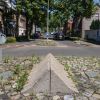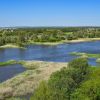“We all have close ties with our neighbouring country”
The village of Büsingen is an german exclave surrounded by Switzerland. What is life like there? Mayor Vera Schraner reports.
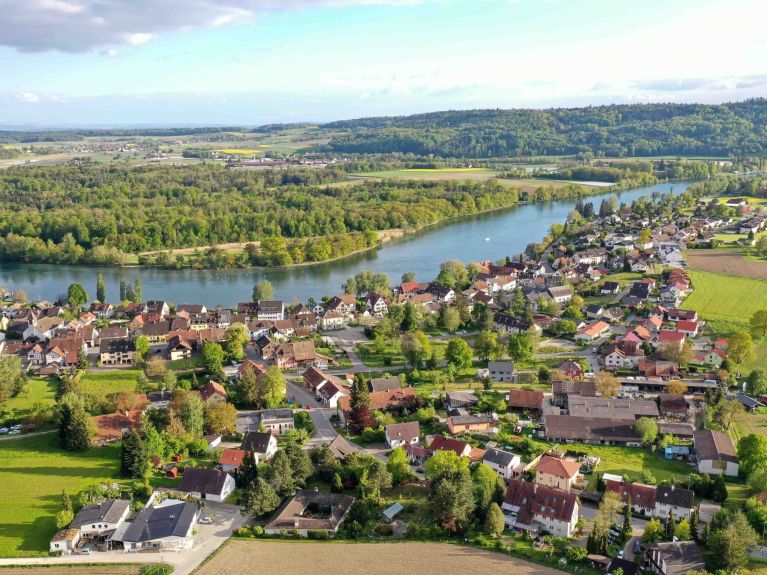
If you start out in the Swiss town of Schaffhausen on Germany’s southern border, very close to Lake Constance, and proceed for a few kilometres eastwards along the Rhine, you will suddenly find yourself in Germany. Normally, you would pass a border post on the way into Switzerland, which is not part of the EU. There’s no sign of one here in the German exclave of Büsingen am Hochrhein, however. Although the village, which covers an area of just 7.62 square kilometres, belongs to Germany, it is cut off from the rest of the country. With a population of 1,500, the village is separated from German territory in the east by a 750 metre-long strip of Switzerland. Local mayor Vera Schraner grew up in Büsingen and also lived in Switzerland for a number of years. She talks about life in this German exclave.
Ms Schraner, how does Büsingen differ from other German towns?
Büsingen is a German island in Switzerland. Anyone wishing to travel to Büsingen from Germany has to pass through 750 metres of Switzerland. A treaty governs our integration into Switzerland and stipulates the areas in which Swiss law applies to us. That is a unique situation in Germany. Our agriculture is subject to Swiss law, and we also belong to Switzerland in terms of customs law. Although we live in Germany, we have to import any goods that we buy in Germany into Switzerland.
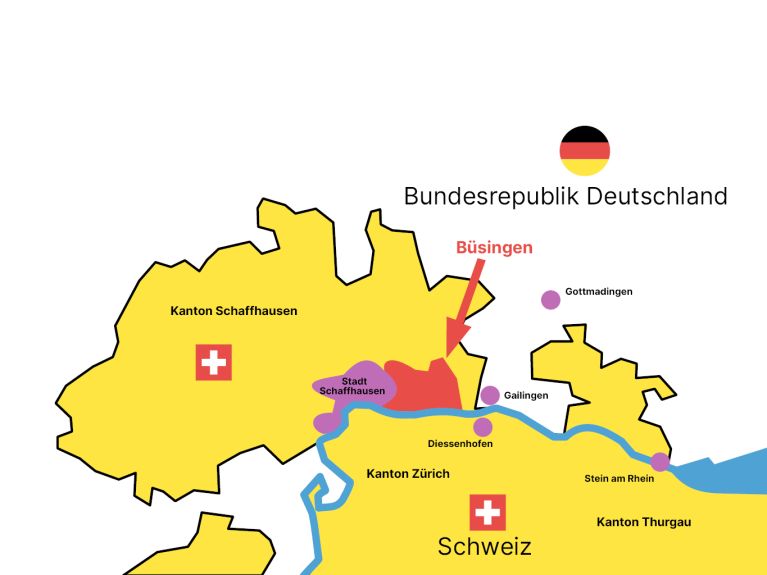
How does this affect the everyday lives of the residents of Büsingen?
There are many examples. We have two postcodes, two mobile phone networks and use two currencies - the euro and the Swiss franc. Our sports clubs play in Swiss leagues. Children growing up in Büsingen will attend secondary school - from year five - in either Germany or Switzerland. We are supplied with Swiss electricity, make calls on the Swiss telephone network, use Swiss drinking water and our farmers are in Swiss agricultural associations. Furthermore, our residents can apply to be exempted from Germany’s mandatory statutory insurance and can take out full insurance in Switzerland.
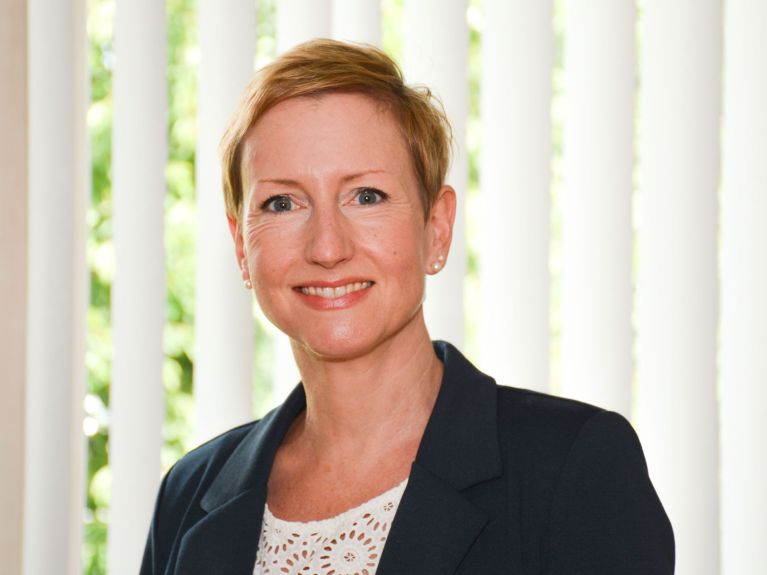
Life in Switzerland is generally considered more expensive than in Germany. Is that also noticeable in Büsingen?
Definitely - prices in restaurants are higher here, for instance. And rents are very high here. They are almost on a par with those in Munich despite the fact that we live in a rural region. All in all it is very expensive to live here. One way we try to soften the blow of the additional costs is to take advantage of the reimbursement of value added tax in Switzerland. We invest this money in ways that will benefit our local community, for example by subsidising nursery or school fees in Switzerland.
Which particular challenges do you face in your everyday life in the exclave?
We have had this special status for so long that we have got used to many things. For example, our fire brigade always has two different hydrant wrenches when it is called out: one for German and one for Swiss hydrants. The double postcodes in Büsingen also cause confusion once in a while: for a long time our sports clubs received financial support from Switzerland. Because of our Swiss postcode, the authorities assumed that we were a Swiss village. When they realised that we belong to Germany, they cut our funding. That was a bitter pill for our sports clubs to swallow. We are currently in the process of negotiating a solution with the canton of Schaffhausen. After all, our clubs play in the Swiss leagues, as I mentioned before. And many Swiss children who live in Schaffhausen are also members of our sports clubs.
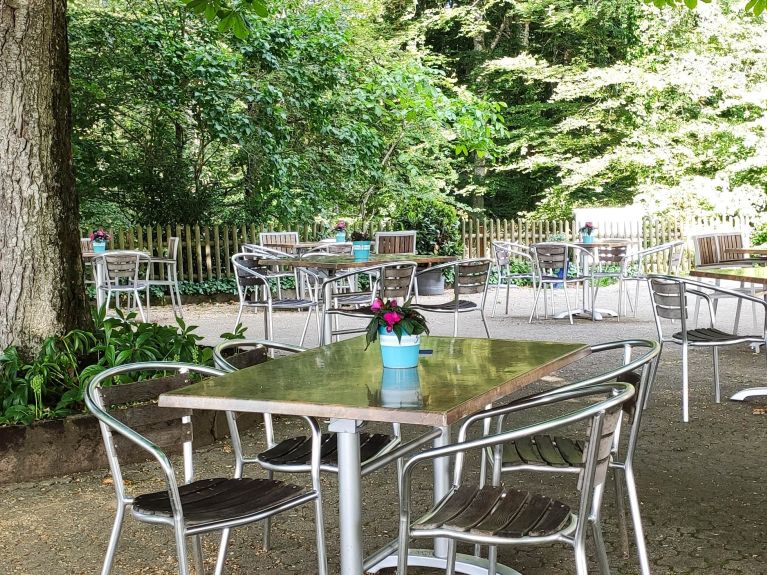
What significance do Germany’s neighbourly relations with Switzerland have for people in Büsingen?
Many people here, especially those of the older generation, feel that they belong more to Switzerland. Essentially, however, we are citizens of Büsingen. There is no physical border with Switzerland and we cross over all the time - when we go to work or school or when we visit friends. Even when you go for a walk you quickly find yourself over in Switzerland. We all have close ties with our neighbouring country. In one case the border actually runs right through the garden of a restaurant, without this ever bothering anyone.
How Büsingen became a German exclave
The exclave status of Büsingen dates back to the 18th century. In 1770, the Habsburg Empire, to which the village belonged at the time, sold the land rights of a neighbouring village to Switzerland. As a result, Büsingen suddenly found itself surrounded by Swiss villages, turning it into a foreign exclave on Swiss territory. The village was initially Austrian, then became part of the Grand Duchy of Baden, part of the Weimar Republic, part of South Baden after the Second World War, and from 1952 part of the German federal state of Baden-Württemberg. Today, Büsingen is German in political terms but subject to Swiss law in economic terms. A treaty has been in place since 1967 to regulate the special features of life here.
